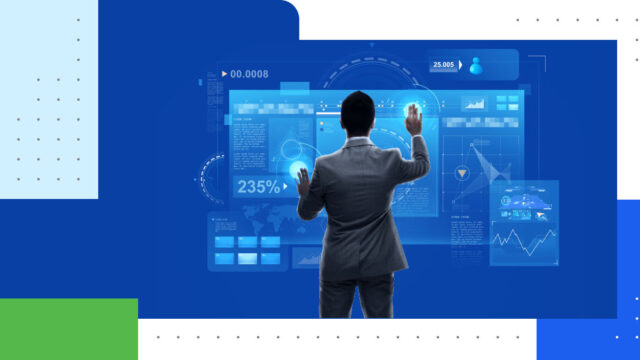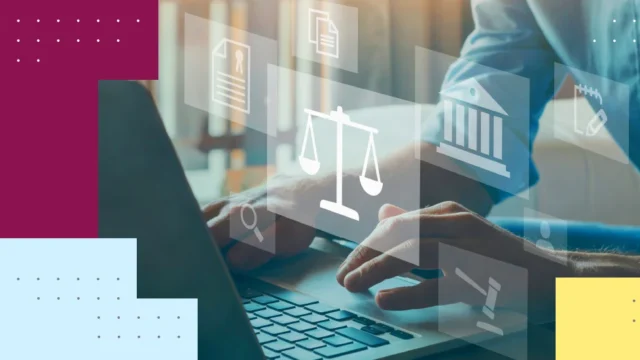
How to Gain New Insights with AI-powered Analytics
A recent webinar examines AI’s capabilities to improve efficiency, enhance performance and modernize accounting and auditing.
Artificial Intelligence (AI) has been having a significant impact on audit and accounting. With its ability to analyze vast amounts of data quickly and accurately through data audit tools and accounting analytics software, AI is helping to improve efficiency, enhance performance and modernize the profession.
A recent Caseware webinar on AI-powered analytics took a deep look at how AI is making this possible, the potential hazards accompanying the technology and how practitioners can mitigate them.
Automation vs. artificial intelligence
Speakers Mary Breslin, audit transformation specialist and founder of Verracy, and Caseware Solutions Consultant – Enterprise Jeff Sorensen, began the discussion by looking at the differences between automation and artificial intelligence.
“Automation is something we’ve had for a long time,” said Sorensen. It has been evident in familiar tools like Excel, which involve processes with repeatable, defined steps. “I go into Excel, select a column, and it automatically adds up all the numbers. It gives you an average. This is stuff that is consistent. It has to work. You don’t sit with a calculator and double-check if Excel has it right. You trust it, you rely on it. You can prove how it works.”
Generative AI, on the other hand, “is like magic for some people,” Breslin added. “It’s creating a bridge in the learning-curve gap that we have….You can literally ask one of these tools, like ChatGPT, to indicate, how do I do X, Y and Z? And it will show you how to do it. It’s going to take people who are good at what they do, and it’s going to make them great.”
An AI application familiar to many is the common bot, which carries out repetitive tasks programmed by humans. This function is predicated on the idea that humans know what to program it to do.
The difference with generative AI, Breslin added, is that you don’t necessarily have to know what to tell it to do.
“We can say, ‘Hey, can you help me figure this out? Can you brainstorm something with me?’ And it may take several prompts, but it is thinking and it can help you with just about anything – from something as simple as crafting a finding for an audit report to helping you detect actual fraud. Ultimately, what it provides us with is speed.”
How AI can be used in audits today
One of the biggest immediate advantages AI can bring to auditing is in the area of data analytics, Breslin said.
“What generative AI tools can do today is look at your database, look at the script, the programming behind the reporting, and say, ‘Oh, yeah, your report’s not accurate.’
Imagine if you’re trying to do IPE testing and you can leverage AI to determine whether or not your reporting is actually accurate.”
Gen AI has been having a notable impact on how audit and accounting work is carried out, primarily since the launch of ChatGPT in late 2022. Many outfits are finding it useful for simplifying many of their operational processes, enhancing data analysis and providing more personalized services for clients, among other uses.
AI is also useful for summarizing large volumes of information, such as meeting transcriptions. Rather than requiring a person to undertake the time-consuming task of typing out hours of meeting minutes, gen AI tools can analyze text chains and return a summary of the key points and notable changes. Being able to clearly see changes occurring within an organization is particularly important in auditing, Breslin noted, because with change comes an increase in risk.
An additional audit application for gen AI today is in the area of report writing. After completing a significant fraud case recently, Breslin fed information about the case into ChatGPT and asked it to explain it in layman’s terms, so that people with no industry knowledge would understand it.
“I was stunned at how well it came back and explained things to me,” she said. “I’m constantly creating content and I was impressed by how much better it was at explaining things than I am.”
Potential pitfalls and mitigation
It’s important for anyone using gen AI tools to ensure they have enough knowledge of the subject at hand to be able to validate whatever output is generated.
“Anybody who is lazy and relies on it has the potential to get themselves into really big trouble,” noted Breslin. “If you just run with it, you can run into really big problems.”
Anyone using AI has to be aware of its limitations. While AI has been taking in an enormous amount of data, and learning new methods of analysis, it has also been exposed to errors and incomplete information. Users also should understand that in some cases AI will be using, or creating, purely hypothetical data or examples.
In just one example, lawyers in New York who were writing a brief used cases described by an AI program. Unfortunately, they didn’t realize (or claimed to not realize) that the program had actually invented the cases. The attorneys were sanctioned for the fictitious citations and could have lost their licenses to practice law.
Users should also be cautious not to add sensitive company information into a gen AI tool, because that data is used to fuel its knowledge acquisition and can be available to other users of the software.
However, Breslin pointed out that most gen AI offerings give users the option to download a single instance of the tool into their environment, behind their firewall, so that it’s protected. “So you don’t have to worry about feeding your organization’s information to the greater AI gods. They don’t have access to it,” Breslin said.
Learn how your practice can boost its view with Caseware IDEA, an advanced, all-in-one analytical tool that takes auditing to a higher level. Book a demo today to see IDEA in action.








